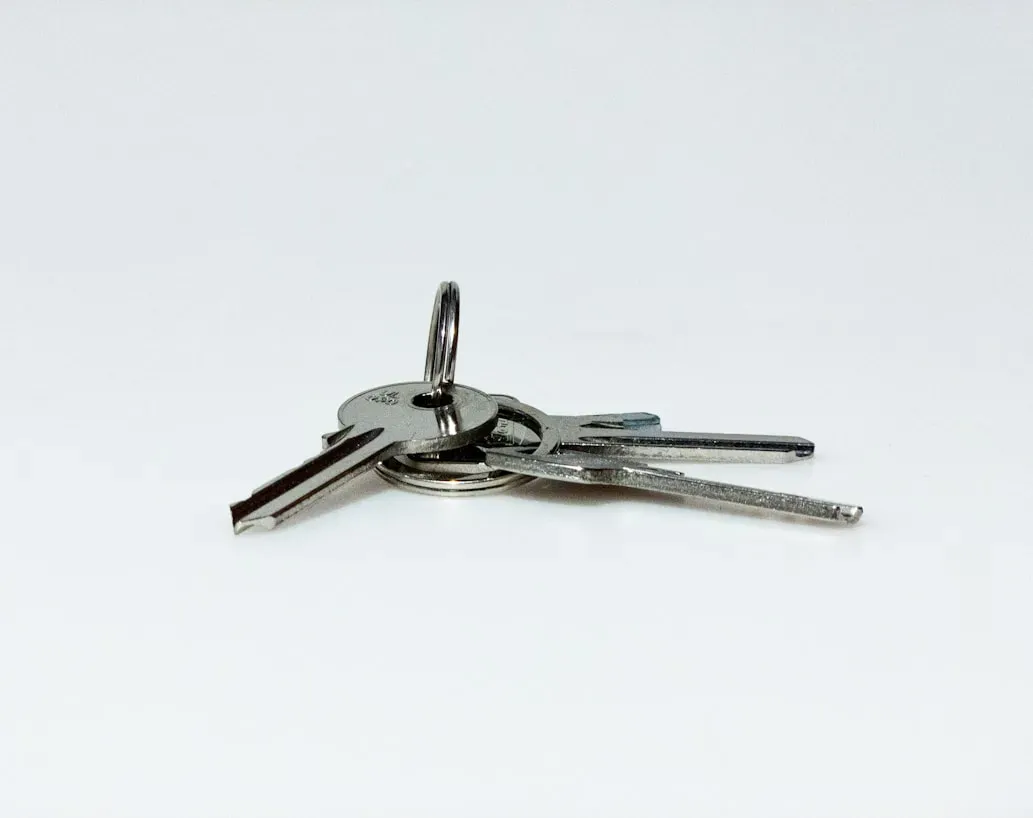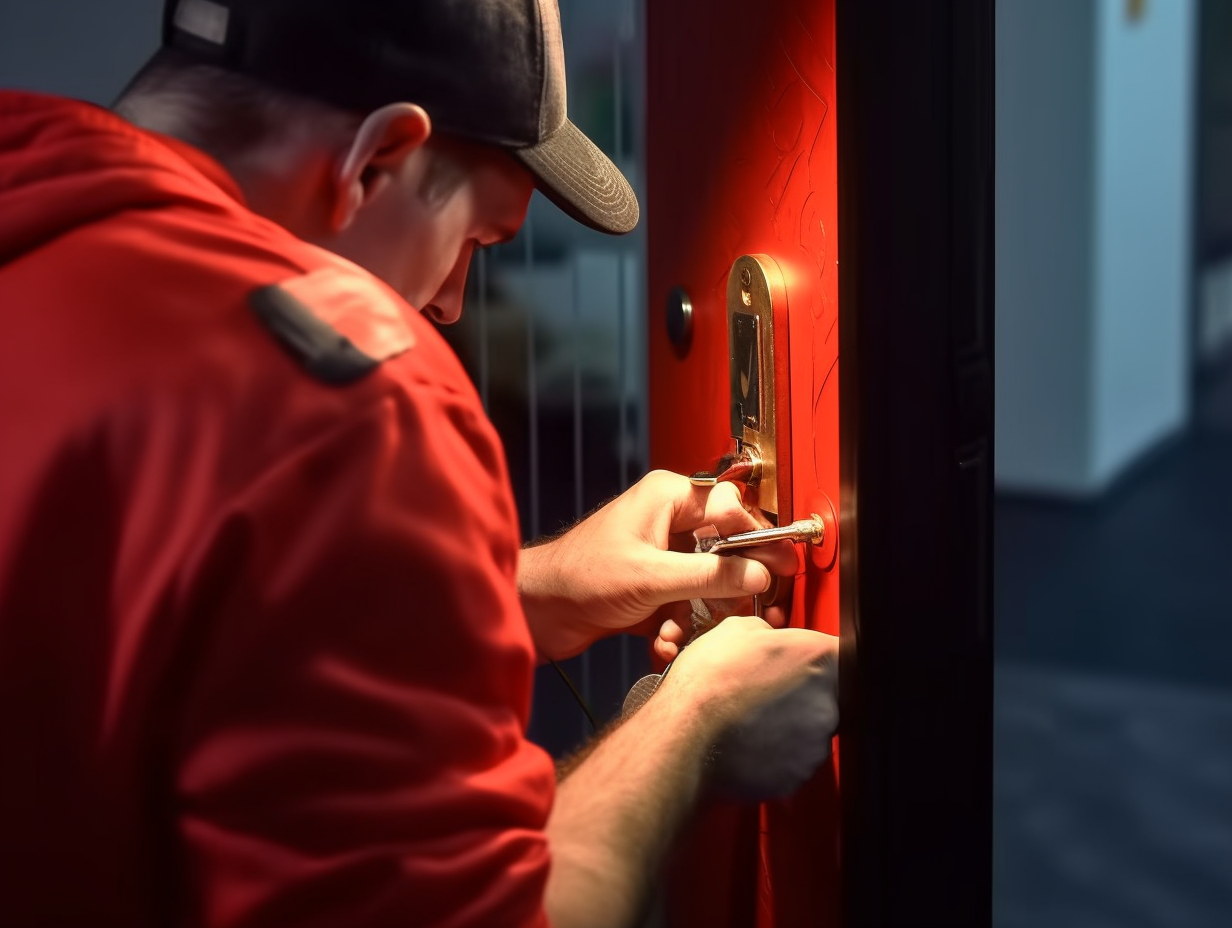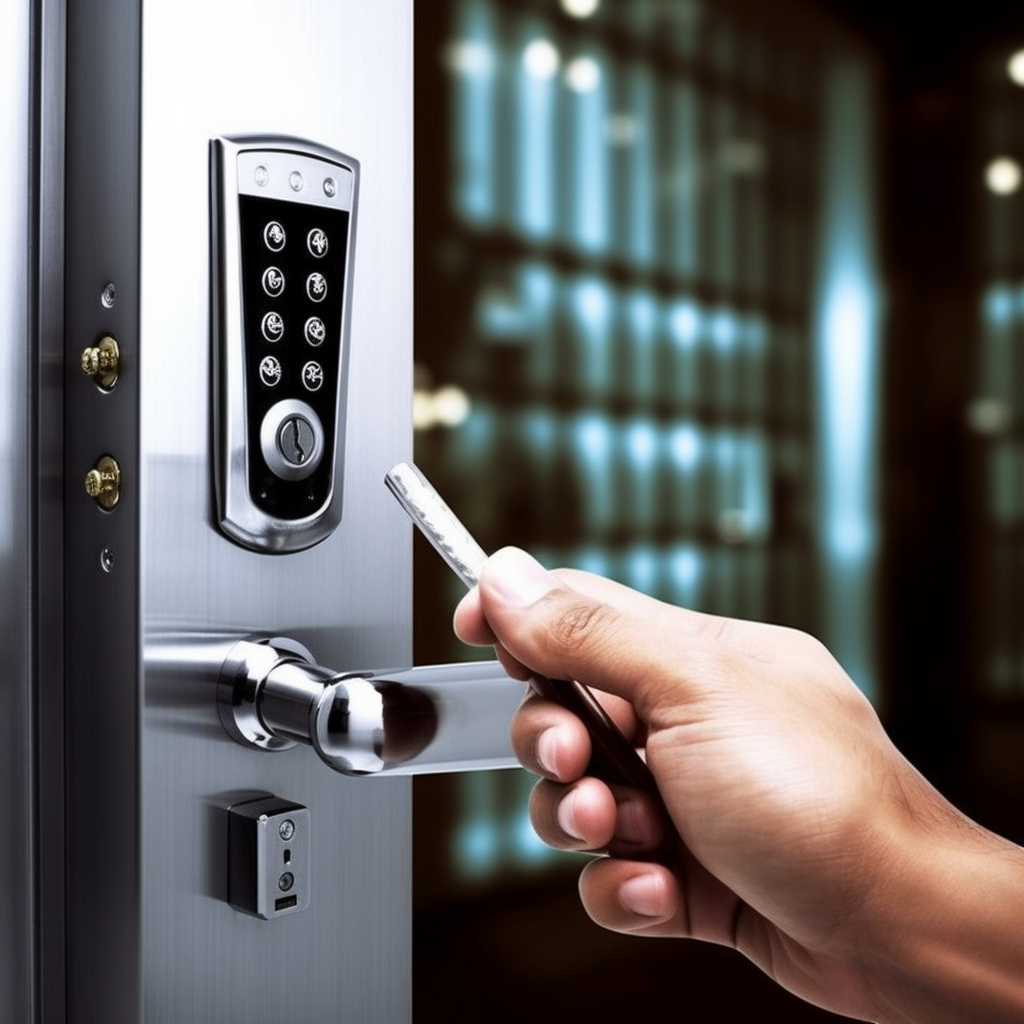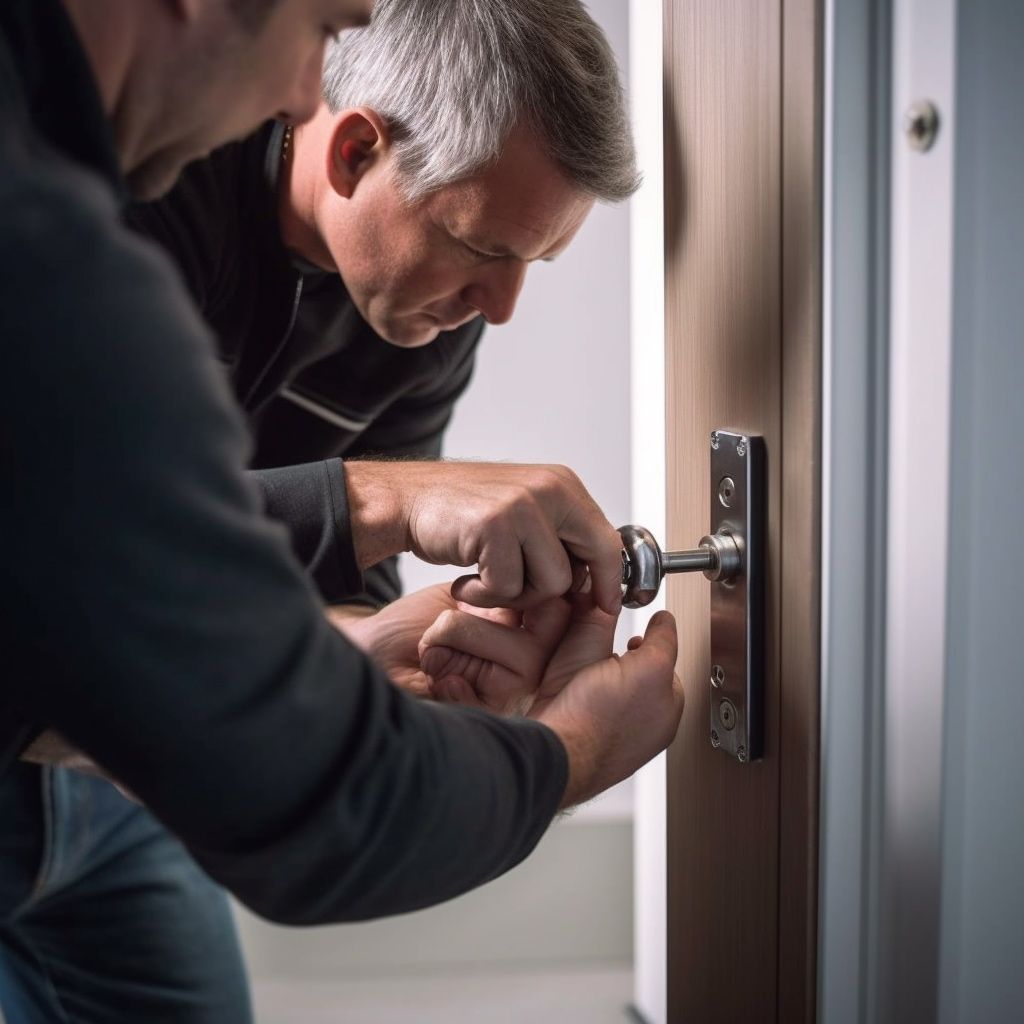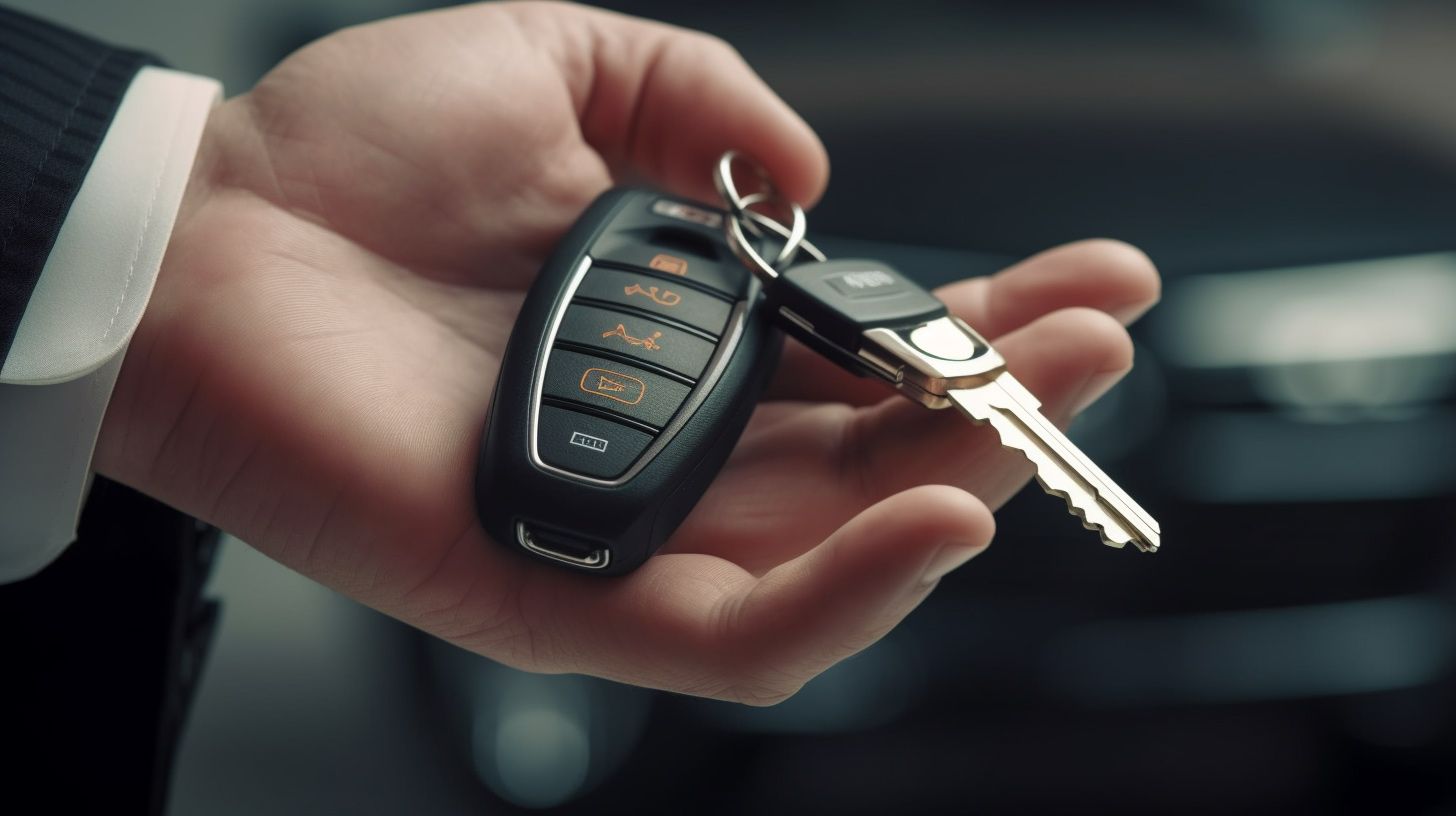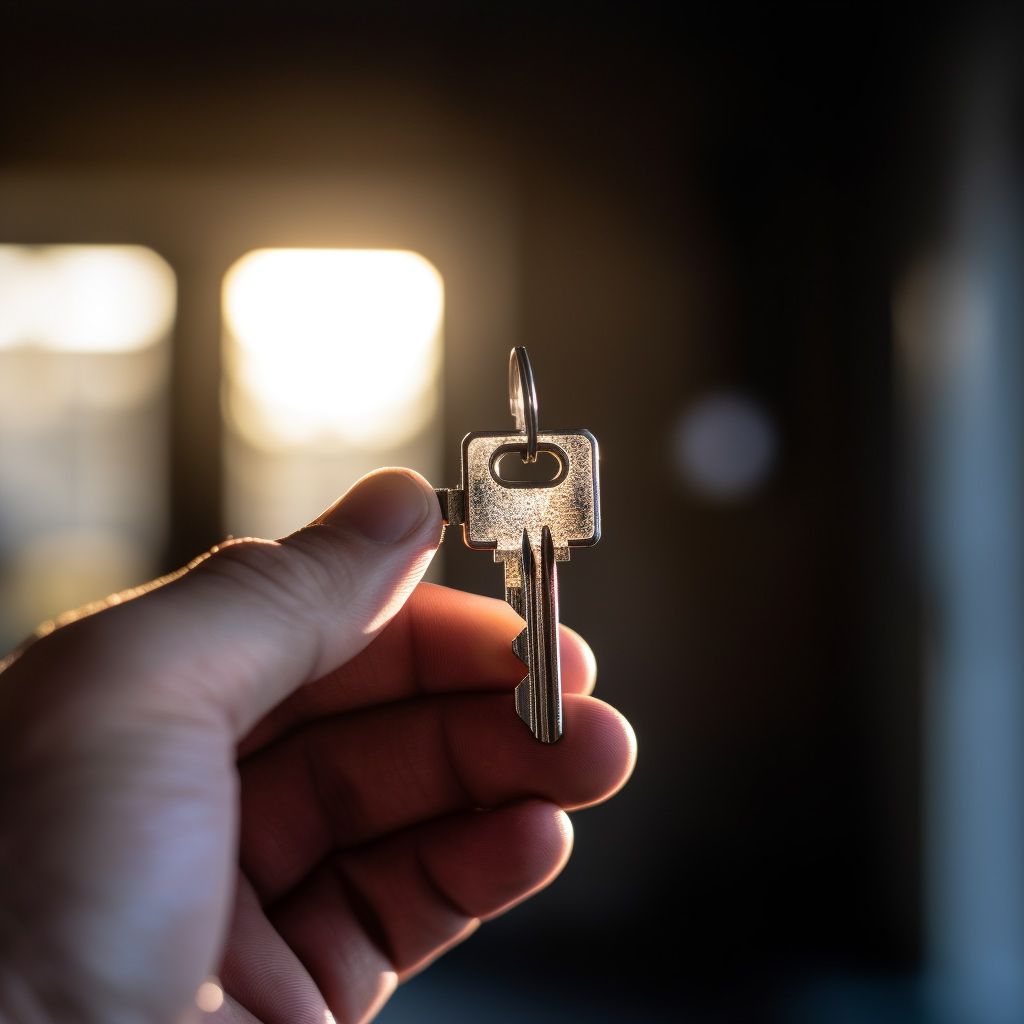OPEN 23 1/2 HOURS A DAY | EMERGENCIES ONLY AFTER 5PM
*standard questions and inquiries will be addressed from 9-5
Rekeying Your New Home

Moving into a new home marks the beginning of an exciting chapter. However, amidst the excitement, security should be a top priority. One crucial step often overlooked is rekeying the locks. Why?
Because you never know how many copies of the keys are out there. This guide delves into the importance of rekeying when moving into a new home, addressing potential concerns and guiding you through selecting a professional locksmith. With the right approach, you can ensure your new home is safe and secure from day one.
Let's unlock the basics of rekeying and why it's essential for every new homeowner.
Why Rekeying is Essential for New Homeowners
Securing Your New Beginning: Rekeying your home's locks is a critical step in securing your new property. It eliminates any uncertainty about who else might have keys—previous owners, realtors, contractors, or anyone they might have given a spare key to.
Control Over Access: Rekeying gives you complete control over who has access to your home. It’s the simplest way to ensure that you are the only one with entry access, providing peace of mind in your new environment.
Cost-Effective Security: Compared to replacing all the locks in your new home, rekeying is a more affordable option. It allows you to maintain the existing hardware while changing the lock mechanism inside, making old keys useless.
Based on Statistics: Studies show that many homeowners don't change or rekey their locks when moving into a new home, significantly increasing their risk of break-ins. Rekeying is a proactive measure to enhance your home's security from the start.
Rekeying isn’t just a security measure; it’s an essential step in making your new house a safe haven for you and your loved ones.
The Risks of Not Rekeying
Unrestricted Access: Not rekeying your locks leaves a window open for anyone with an old key to gain access. This includes not just previous owners, but also their friends, family, and any service providers they might have entrusted with a spare key.
Potential for Break-Ins: Homes that haven't had their locks rekeyed are more susceptible to break-ins. Intruders often rely on the negligence of new homeowners. Accessing a property with an existing key is far easier and quieter than forced entry, making it a preferred method for burglars.
Compromised Privacy: Your home is your sanctuary. Without rekeying, the thought of strangers having potential access can compromise your sense of privacy and security, affecting your comfort and peace of mind.
Insurance Implications: Some insurance policies may have specific requirements about changing locks or rekeying as part of their terms. Failure to comply could affect your coverage in the event of a break-in.
Neglecting to rekey your locks can have serious implications for your home's security and your personal well-being. It’s a risk that’s easily mitigated with the simple act of rekeying.
Hiring a Professional Locksmith for Your New Home
When moving into a new home, ensuring the security of your property is paramount. While DIY rekeying is an option for some, hiring a professional locksmith offers peace of mind and guarantees that the job is done correctly and efficiently. Here's how to ensure you choose the right locksmith for your needs:
Understanding the Importance of Professional Rekeying
- Professional locksmiths bring expertise and the right tools to rekey your locks quickly and securely.
- They can assess your home's overall security needs, offering solutions you might not have considered.
Tips for Selecting a Reputable Locksmith
- Look for Local: Choose a locksmith who is local to your area. A local professional will be familiar with your community's security needs and can provide quick service when needed.
- Check Reviews and Ratings: Online reviews on platforms like Google, Yelp, and Angie's List can provide insight into the locksmith’s reliability and quality of service. Look for locksmiths with high ratings and positive feedback.
- Verify Credentials: A reputable locksmith should be licensed, bonded, and insured. These credentials protect you in case of damage or if the locksmith fails to complete the job as promised.
- Ask for Recommendations: Word-of-mouth is a powerful tool. Ask neighbors, family, or your real estate agent for locksmith recommendations.
- Experience Counts: Inquire about their experience, especially with rekeying for new homeowners. Experienced locksmiths can handle unexpected issues and provide valuable security advice.
- Request an Estimate: Before committing, ask for an estimate. This should include the cost of labor, parts, and any potential additional fees. Be wary of locksmiths who offer significantly lower estimates than others; this could be a red flag.
Questions to Ask a Potential Locksmith
- Can you provide proof of licensing, bonding, and insurance?
- How long have you been operating in this area?
- Do you offer a warranty on your work and the hardware installed?
- Can you provide a detailed estimate before starting the work?
- How do you handle security and privacy for your clients?
Credentials to Look For
- Licensing: Not all states require locksmiths to be licensed, but if yours does, ensure the locksmith has a current license.
- Bonding and Insurance: These protect you from potential damages or if the locksmith doesn’t fulfill the contract.
- Certifications: Certifications from recognized locksmith associations, like the Associated Locksmiths of America (ALOA), indicate that the locksmith has received advanced training and adheres to a code of ethics.
Additional Security Measures Post-Rekeying
After ensuring your locks are rekeyed, it’s wise to consider additional security measures to further protect your new home. Here’s what you can do to enhance security:
Upgrade to Smart Locks: Smart locks offer both convenience and enhanced security. With features like remote access, guest codes, and history logs, you can control and monitor entry to your home from anywhere.
Install Security Cameras: Visible security cameras can deter potential intruders and help you keep an eye on your property. Today’s cameras come with features like motion detection, night vision, and cloud storage.
Invest in a Security System: A comprehensive security system can include door and window sensors, motion detectors, and 24/7 monitoring, adding an extra layer of protection for your home.
Lighting is Key: Well-lit exteriors can discourage burglars. Consider installing motion-sensor lights around entry points and pathways to illuminate anyone approaching your home.
Secure Windows and Secondary Doors: Ensure all windows have locks and consider adding security bars or films. For sliding doors, use a security bar or a dowel in the track to prevent opening.
Regular Security Audits: Periodically assess your home’s security. Check that all locks are functioning correctly and look for potential vulnerabilities that need addressing.
Taking these steps can significantly enhance your home’s security, complementing the initial rekeying and providing a robust defense against potential threats.
FAQs on Rekeying for New Homeowners
Q: How soon after moving should I rekey my locks?
A: Immediately. Rekeying as soon as you take possession of your new home ensures that you control who has access from day one.
Q: Is rekeying expensive?
A: Rekeying is generally more cost-effective than replacing your locks entirely. The cost can vary depending on the number of locks and the complexity of your lock system, but it’s a worthwhile investment for your security.
Q: Can I rekey the locks myself?
A: While DIY rekeying kits are available, hiring a professional locksmith is recommended to ensure the job is done correctly and securely, especially if you have modern or complex lock systems.
Q: How do I know if my locks can be rekeyed?
A: Most pin tumbler locks can be rekeyed. However, if you have older or specialized locks, it’s best to consult with a professional locksmith to assess your specific needs.
Q: Does rekeying make my home more secure?
A: Yes, rekeying eliminates the risk of previous key holders accessing your home. For enhanced security, consider additional measures like upgrading to high-security locks, installing a home security system, or adding smart lock features.
Q: Should I change my locks instead of rekeying?
A: Rekeying is often sufficient for security unless your locks are old, damaged, or you desire features that your current locks do not provide. In those cases, replacing your locks might be the better option.
Conclusion
Securing your new home starts with a critical step: rekeying your locks. This simple act ensures that you're the sole gatekeeper to your property, eliminating worries about previous owners or their acquaintances having access. Coupled with the additional security measures discussed, rekeying lays a solid foundation for your home's safety and your peace of mind.
Call to Action
Ready to secure your new home? Contact a professional locksmith today and take the first step towards comprehensive home security. Remember, a safe home is a happy home.
CONTACT INFORMATION




